Alistar Kata
AUCKLAND (Pacific Media Watch): Pacific people are linked to their land in a cultural and spiritual way, which makes messages about their changing environment hard to receive, says Kiribati Independent editor Taberannang Korauaba.
“First, they belong to the land, their land is theirs, they really have a strong connection there," he told a public seminar on climate change and the media at AUT University last night.
“So when the media is trying to work to cover the story, people don’t want to hear that because they don’t want to hear stories about 'they’re sinking, they’re going to die'."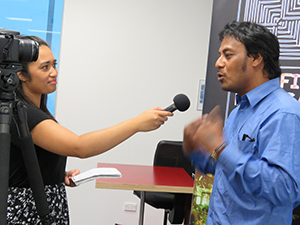 Korauaba has encouraged journalists to approach their climate change stories in a different way with his newspaper.
Korauaba has encouraged journalists to approach their climate change stories in a different way with his newspaper.
“They are putting people as victims, of course they are the victims,” he said.
“But they need to come up with a different approach, a different style to tell the people that their country is in danger”.
Science communication specialist Dr Jan Sinclair of Massey University, who also spoke at the seminar, gave detailed information showing that the media favour the political factors of the issue, rather than “telling the public what they need to know”.
Media responsibility
“It seems to me that journalists have a responsibility to tell people, number one, you actually are in danger, and number two, 'Oh look there are things you can do so start thinking about them'."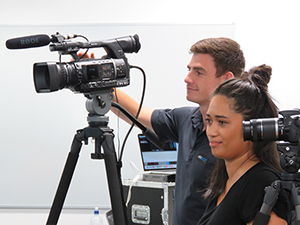 As a former science journalist, Dr Sinclair also addressed the breakdown in communication from the experts to the public.
As a former science journalist, Dr Sinclair also addressed the breakdown in communication from the experts to the public.
“I say, look you know all these things about climate change, people need to know about them, why are you not talking to the news media?”
“And they say, 'No, our role is simply to advise policy makers'."
Both Korauaba and Dr Sinclair suggested a collaborative approach to informing the public in the correct way.
Korauaba believes pushing the message through respected community leaders to communities in the Pacific is a way for people to realise “something’s going on”.
“It’s people’s own identity, their land, their culture, it’s very hard to remove people from their roots”.
Students, teaching staff, members of the public and climate change advocates attended the seminar.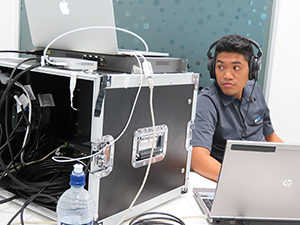 A live stream of the event was viewed by a total of 188 people from 24 countries, including 142 from New Zealand.
A live stream of the event was viewed by a total of 188 people from 24 countries, including 142 from New Zealand.
Other viewers tuned in from the United States, Fiji, Australia, Mexico, United Kingdom and Vanuatu.
The call for action - recommendations
Watch the livestream podcast
David Robie's Cafe Pacific comment
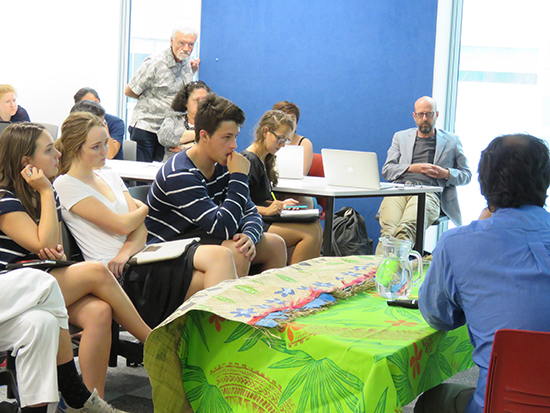
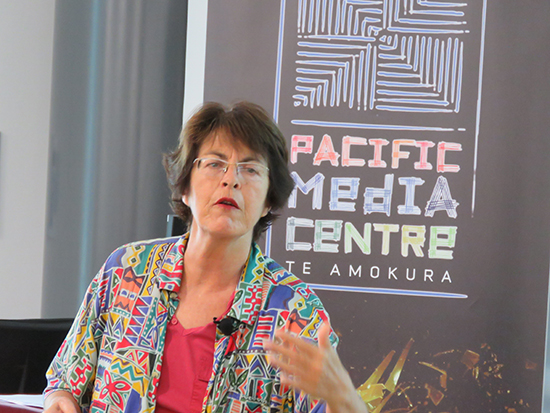
This work is licensed under a Creative Commons Attribution-NonCommercial 3.0 New Zealand Licence.




